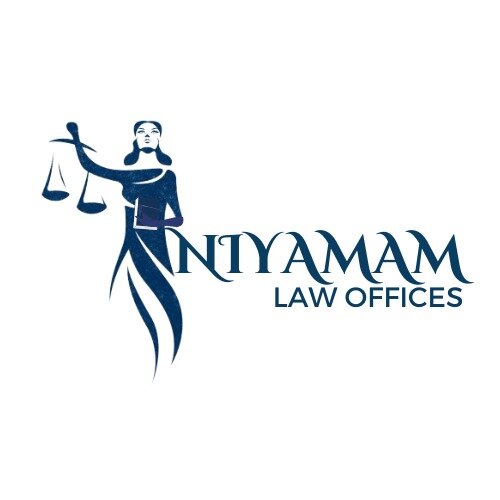Best Antitrust Litigation Lawyers in Delhi
Share your needs with us, get contacted by law firms.
Free. Takes 2 min.
List of the best lawyers in Delhi, India
About Antitrust Litigation Law in Delhi, India
Antitrust litigation in Delhi, India, refers to legal actions involving the enforcement of laws aimed at maintaining fair competition among businesses and preventing anti-competitive practices. These laws are codified chiefly in the Competition Act, 2002, which is India's primary statute to deal with anti-competitive agreements, abuse of dominant position, and regulation of combinations such as mergers and acquisitions. Delhi, as the location of the Competition Commission of India (CCI) and the National Company Law Appellate Tribunal (NCLAT), is the central hub for antitrust enforcement and related judicial proceedings in India. Antitrust litigation helps maintain market integrity and protect the interests of consumers and businesses alike.
Why You May Need a Lawyer
Antitrust matters can be complex, involving intricate economic and legal analysis. Individuals and businesses in Delhi may require legal representation for a variety of reasons, such as:
- Being investigated by the Competition Commission of India for alleged anti-competitive practices
- Challenging penalties or orders passed by the CCI
- Filing complaints against competitors for anti-competitive agreements, price-fixing, bid-rigging, or abuse of dominant position
- Seeking guidance on compliance with Indian competition laws during mergers, acquisitions, or strategic commercial collaborations
- Facing business losses due to cartelization or market manipulation
- Defending or prosecuting private antitrust actions before courts or tribunals
- Advising on policy and compliance documents for businesses operating in a competitive market
Legal assistance is crucial as antitrust matters often require specialized knowledge of local regulations, market dynamics, and strategic litigation or dispute resolution skills specific to Delhi and Indian law.
Local Laws Overview
The Competition Act, 2002, is the cornerstone of antitrust regulation in India. Key aspects relevant to antitrust litigation in Delhi include:
- Anti-Competitive Agreements: The Act prohibits agreements that cause or are likely to cause an appreciable adverse effect on competition within India. This includes price-fixing, bid-rigging, and market allocation arrangements.
- Abuse of Dominant Position: Entities holding a dominant position in the market are prohibited from using that position to stifle competition. Such abuses include predatory pricing, denying market access, or imposing unfair trading conditions.
- Regulation of Combinations: Mergers, acquisitions, and amalgamations above certain thresholds require mandatory notification and approval from the CCI to ensure they do not hurt market competition.
- Investigation and Enforcement: The CCI has wide-ranging investigative powers. It can initiate investigations based on information received or on its own motion and can impose penalties, issue cease and desist orders, and direct structural changes within companies.
- Adjudicatory Bodies: The CCI is the primary regulatory body for antitrust issues. Decisions of the CCI can be appealed to the NCLAT, and further to the Supreme Court of India.
Delhi's proximity to these regulatory and appellate authorities makes it especially significant for businesses and individuals dealing with antitrust issues in India.
Frequently Asked Questions
What is antitrust litigation?
Antitrust litigation involves legal proceedings related to the breach of competition laws, such as anti-competitive agreements, abuse of dominance, and regulation of mergers and acquisitions. It can be initiated by affected parties or the Competition Commission of India.
Who enforces antitrust laws in Delhi, India?
The Competition Commission of India, headquartered in New Delhi, is responsible for enforcing antitrust laws across India. Its orders can be appealed to the National Company Law Appellate Tribunal, also located in Delhi.
Can private parties file antitrust complaints?
Yes, private parties including individuals, businesses, and consumer associations can file information or complaints regarding anti-competitive practices before the CCI.
What are some examples of anti-competitive practices?
Examples include price-fixing, bid-rigging, market allocation, predatory pricing, refusal to supply, and exclusive dealing arrangements that restrict market competition.
Is it mandatory to notify all mergers and acquisitions to the CCI?
Only those mergers and acquisitions that cross prescribed asset or turnover thresholds require mandatory notification and approval from the CCI before they can be completed.
What penalties can the CCI impose for violations?
The CCI can impose monetary penalties which can be up to ten percent of the average turnover for the last three financial years of the violating party, along with orders to cease anti-competitive practices or modify agreements.
What is the process after filing a complaint with the CCI?
The CCI reviews the information provided, may order a preliminary inquiry, and if needed, directs the Director General to conduct a detailed investigation. The parties concerned have an opportunity to present their case before the CCI makes a final order.
How long do antitrust proceedings take in Delhi?
The duration depends on the complexity of the case. Some inquiries end within a few months, while investigations, hearings, and appeals could extend over several years.
What are the remedies available in antitrust litigation?
Remedies may include monetary compensation, injunctive relief (stop the anti-competitive practice), or structural changes such as divestitures or annulment of agreements.
Do I need an advocate to appear before CCI or NCLAT?
While it is not legally mandatory, engaging a lawyer with expertise in competition law is highly recommended due to the complex nature of antitrust proceedings and the need for technical and legal representation.
Additional Resources
For those seeking more information or assistance relating to antitrust litigation in Delhi, the following resources and organizations can be useful:
- Competition Commission of India (CCI) - The primary regulator for enforcement of competition law in India.
- National Company Law Appellate Tribunal (NCLAT) - Appellate tribunal for challenging orders passed by the CCI.
- Ministry of Corporate Affairs - Government department overseeing the implementation of the Competition Act, 2002.
- Delhi Bar Association - Can help in connecting with advocates specialized in antitrust and competition law.
- Law Libraries and Legal Aid Clinics at Delhi-based law universities and colleges.
- Legal publishers and websites that provide commentary and updates on Indian competition law and case law developments.
Next Steps
If you believe you are affected by anti-competitive practices, or if your business operations may raise antitrust concerns, consider taking the following steps:
- Document all relevant evidence, communications, and contracts relating to the suspected anti-competitive conduct.
- Conduct an internal review or audit for compliance with the Competition Act, 2002.
- Consult an advocate or law firm in Delhi with expertise in antitrust and competition law to evaluate your case and outline possible legal strategies.
- File a formal complaint or information submission with the CCI if you wish to initiate proceedings.
- If served with a notice or investigation order from the CCI, promptly seek legal counsel to ensure timely and accurate responses.
- Engage in mediation or discussion if prescribed by authorities, while safeguarding your rights and interests.
- Stay updated on legal timelines for filing appeals or responses to ensure you do not miss legal remedies due to procedural delays.
Taking proactive legal advice is essential in antitrust litigation in order to protect your interests and ensure regulatory compliance in Delhi, India.
Lawzana helps you find the best lawyers and law firms in Delhi through a curated and pre-screened list of qualified legal professionals. Our platform offers rankings and detailed profiles of attorneys and law firms, allowing you to compare based on practice areas, including Antitrust Litigation, experience, and client feedback.
Each profile includes a description of the firm's areas of practice, client reviews, team members and partners, year of establishment, spoken languages, office locations, contact information, social media presence, and any published articles or resources. Most firms on our platform speak English and are experienced in both local and international legal matters.
Get a quote from top-rated law firms in Delhi, India — quickly, securely, and without unnecessary hassle.
Disclaimer:
The information provided on this page is for general informational purposes only and does not constitute legal advice. While we strive to ensure the accuracy and relevance of the content, legal information may change over time, and interpretations of the law can vary. You should always consult with a qualified legal professional for advice specific to your situation.
We disclaim all liability for actions taken or not taken based on the content of this page. If you believe any information is incorrect or outdated, please contact us, and we will review and update it where appropriate.















